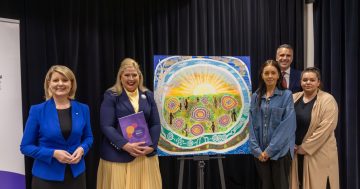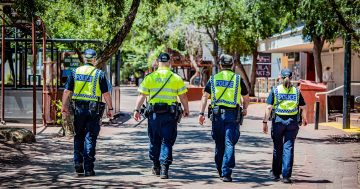
The new program creates a research database for stakeholders and key fields to consult. Photo: Pranithan Chorruangsak.
The Northern Territory Government is investing in initiatives to create resources and training for frontline support for domestic, family and sexual violence (DFSV) victims.
Partnered with Charles Darwin University (CDU), the $913,000 investment from the CLP Government will kick off the NT’s first DFSV Knowledge Exchange and create a university-level training program in an effort to bolster frontline support and intervention for those suffering from DFSV.
The Knowledge Exchange, set to launch by mid-2027, will be an entirely online network and evidence repository run by the Molly Wadaguga Institute, which operates within CDU. The exchange will unite evidence and experts whose research concerns the NT to create a central hub for policy, service and research collaboration.
“Change won’t come from the status quo – business as usual is not working. We need new solutions that work in the Territory and help address the root causes of DFSV,” Minister for Prevention of Domestic Violence Robyn Cahill said.
“This research unit will be a Territory-first – a place where our local knowledge, lived experience and frontline data come together to drive meaningful change. This investment will help us understand what’s happening on the ground and shape responses that achieve real outcomes.”
The second initiative is aimed at the creation of a university curriculum to give professionals in the field the knowledge and skills to give victims and survivors the assistance they need. The new curricula will embed trauma-informed approaches in related key degrees such as social work, law, education, nursing and child protection. These courses are also due to be rolled out from 2027.
Associate Professor Kayli Wild said: “Frontline workers across the Territory need more support. These initiatives will equip new graduates with the knowledge and skills to reduce trauma through systems and will include innovative content on working with people who use violence.
“It will complement the strong in-service training already underway across the NT, contributing to a skilled, sustainable workforce to support better outcomes for people experiencing violence.”
If you are suffering from DFSV, or a loved one is, resources are available. If you are in immediate danger, call triple zero.




